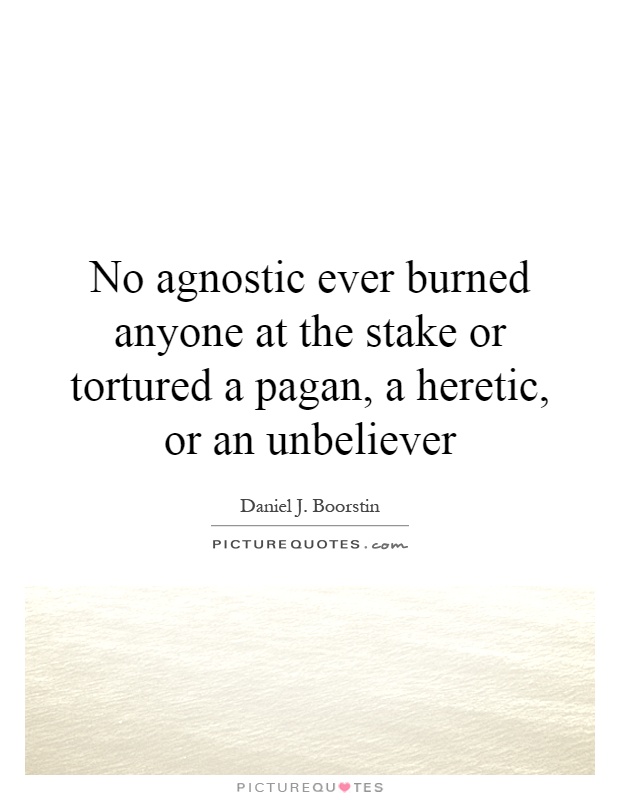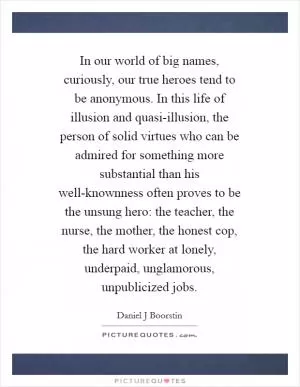No agnostic ever burned anyone at the stake or tortured a pagan, a heretic, or an unbeliever

No agnostic ever burned anyone at the stake or tortured a pagan, a heretic, or an unbeliever
Daniel J. Boorstin, an American historian, once famously said, "No agnostic ever burned anyone at the stake or tortured a pagan, a heretic, or an unbeliever." This statement speaks volumes about the nature of agnosticism and its relationship to violence and intolerance.Agnosticism is a philosophical position that asserts that the existence of God or the supernatural is unknown or unknowable. Agnostics do not claim to have absolute knowledge about the existence or non-existence of a higher power, and as a result, they tend to be more open-minded and tolerant of differing beliefs and worldviews.
In contrast, history is replete with examples of religious zealots who have committed unspeakable acts of violence in the name of their faith. From the Spanish Inquisition to the Salem witch trials, religious extremism has often led to persecution, torture, and death for those who do not adhere to the dominant religious beliefs of the time.
Boorstin's statement highlights the fact that agnostics, by their very nature, are less likely to resort to violence in the name of their beliefs. Without a dogmatic adherence to a particular religious doctrine, agnostics are more inclined to engage in rational discourse and respectful debate with those who hold different beliefs. This is not to say that agnostics are immune to intolerance or prejudice, but rather that their lack of certainty about the existence of God tends to make them more open to diverse perspectives.












 Friendship Quotes
Friendship Quotes Love Quotes
Love Quotes Life Quotes
Life Quotes Funny Quotes
Funny Quotes Motivational Quotes
Motivational Quotes Inspirational Quotes
Inspirational Quotes